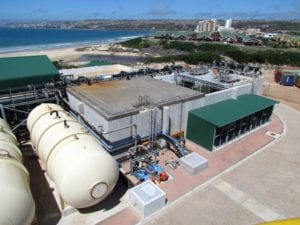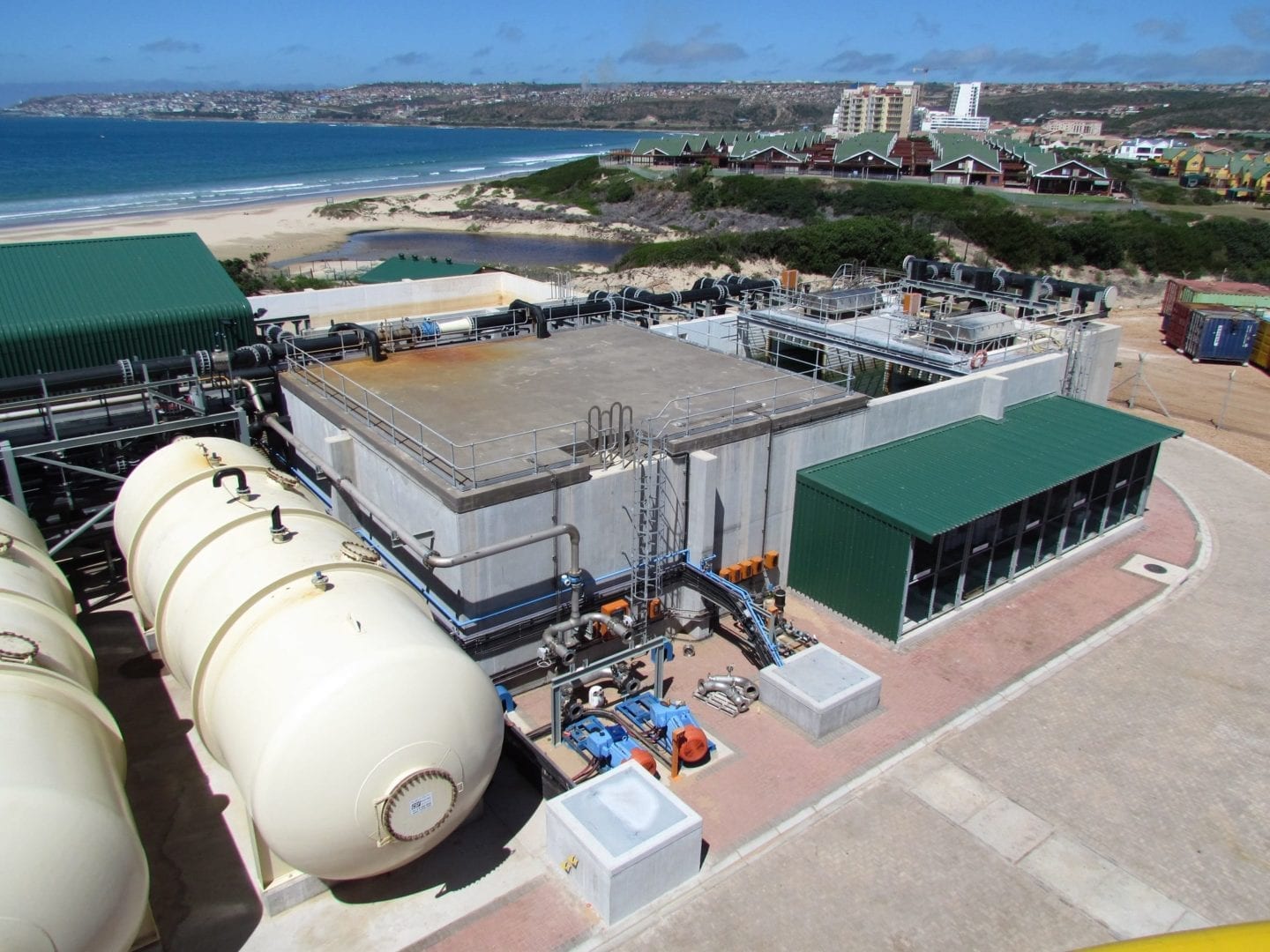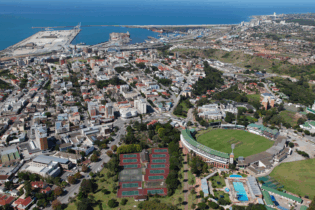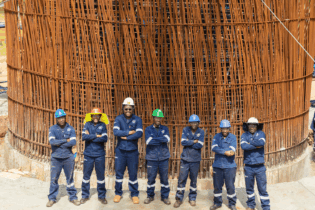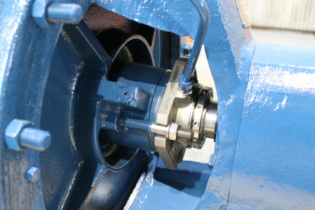The new chemical manufacturing facility, which will significantly increase the production output of the current plant, will exceed all current compliance requirements, with further ISO and international certifications being made possible. This state-of-the-art facility will serve as a production platform for the supply of Veolia’s Hydrex speciality chemicals range to Africa. Chemicals are also a central component of the company’s operations and maintenance offerings. This service is helping customers increase their profitability and efficiency by allowing Veolia to run their on-site water treatment requirements while customers focus on their core production activities.
“At a number of municipal and industrial plants, ongoing operations and maintenance contracts have helped clients lower overall treatment costs across the water cycle through both reduced energy and chemical consumption,” Braybrooke continues. Innovating sustainability Today, Veolia’s technologies, such as the trademarked Biothane Memthane®, Biobed®, Upthane® and its clarification range of ActiFlo® and Multiflo® mean, water reuse and the harvesting of biogas are becoming increasingly profitable, rejuvenating both municipal and industrial budgets. “At a recent dairy plant project in South Africa, for example, we supplied a 1 500 m3/day Memthane® anaerobic membrane bio-reactor to treat the plant’s high-oxygen-demand wastewater in such a way that enables water to be recycled internally, methane harvested and incinerated in boilers and dried biomass sold as fertiliser. This delivers a significant total operating cost reduction compared to conventional technologies, and demonstrates how our technology is reconceptualising waste products as valuable resources that can lower costs and improve our sustainability,” says Braybrooke. Another important pillar of consolidating future water security lies in desalination technology. While still more expensive than conventional water sources, it does provide a secure solution for potable water production from either seawater or brackish water, where other options are limited. Veolia is the leading provider of desalination technology in South Africa, having constructed seven seawater desalination plants across the country to date, including the country’s largest at Mossel Bay (at 15 Mℓ/day). It has also supplied brackish water desalination systems to Sasol, Impala Platinum, Eskom and a number of other industrial companies. Empowering Africa Alongside the capital and structural investments enabling Veolia to grow its African ambitions is the company’s social investment mandate. As Rencken explains, “We are currently increasing our commitment to BBBEE in South Africa, with a new shareholding arrangement between Veolia and a local black partner currently being finalised, which will be concluded by August 2017.”
In unveiling its new ‘Africa Organisation’, Veolia Water Technologies has entered the next chapter in its history. The water solutions specialist is laying out a new global vision that will enhance its ability to respond to Africa’s water treatment requirements.
Ambitions for Africa, a central growth initiative within Veolia Water Technologies’ Transformation Plan describes a range of organisational and technological innovations aimed at increasing Africa’s access to highly efficient, low-footprint treatment technologies through streamlined manufacturing, distribution and service networks. “The Africa Organisation embraces a new platform of shared services between strategic anchor areas in Africa, including Southern Africa, and Veolia in Europe, enhancing our ability to offer global technology solutions within localised service, support and management structures,” explains Gunter Rencken, managing director, Veolia Water Technologies South Africa.
Aligned with this new organisational framework is the launch of an exciting Standard Product Portfolio, designed to provide reliable plug-and-play water treatment solutions with fast turnaround times for industrial and municipal water treatment requirements in Africa.“Our standard products comprise a range of packaged solutions of adapted Veolia products and technologies for specific market bases in Africa,” Rencken explains. These include treatment solutions for municipal drinking water and wastewater, industrial process water and wastewater, agriculture, aquaculture, power generation, mining, pharmaceuticals and food and beverage.“Designed to meet the economic and operational realities of increasing the continent’s water security, our standard product range facilitates the provision of proven treatment solutions with short lead times through an enhanced African distribution and service network.”
African manufacturing platform
Veolia South Africa plays a critical role within this structure as a key technology and manufacturing hub for a range of standard products, and will provide a vital engineering and manufacturing platform to drive this new African strategy.
To meet the increased demand for water and wastewater solutions, the company has implemented a new organisational structure that will strengthen its core business solutions across design and build, standard products, chemical products and operations and maintenance services in line with local and African market demands. This includes up-scaling production plants for the standard packaged products and chemicals divisions in Johannesburg, while streamlining the organisational efficiencies, engineering and project execution of Veolia’s design and build unit, for enhanced customer service.
From its new production facility in Sebenza, Veolia will significantly increase its output of standard packaged products to meet the burgeoning market demands for the company’s modular plants. “In 2016, we supplied a record number of modular plants to industries and municipalities,” says Chris Braybrooke, general manager: Marketing. “These innovations are a game changer for meeting water treatment requirements in Africa, with proven off-the-shelf technologies that can be rapidly deployed to respond to urgent requirements.” While the modular plant also offers an intrinsic mobility, Veolia has taken this a step further with a new, uniquely African innovation. Designed and manufactured in South Africa, the fully mobile, truck-mounted modular plant, which can be equipped with any of the company’s treatment technologies, offers dramatic efficiency improvements in responding to varying water challenges and emergency situations over regular tankers ferrying water or dealing with waste. The first of these plants was supplied by Veolia in 2016 as part of a solution that included four truck-mounted water treatment plants supplying potable water to various communities across Lesotho.
“This is an example of our local engineering services catering to the situational needs of African markets, with specific technological modifications designed to the African context, while still meeting international quality standards,” Braybrooke says. In addition to the new standard packaged products facility, rapid growth in the speciality chemicals market has required Veolia to increase its chemical manufacturing output.


